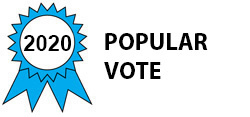
Create a returnable plastics lottery system where reverse vending machines are used as "slot machines" (https://youtu.be/I2C7GjP1fGs) and where any (authorized) plastic item could be deposited and where only very occasionally would the depositor win a (relatively) large dollar amount prize.
Reverse vending machines have already been invented (https://newsroom.tomra.com/reverse-vending-101-a-beginners-guide/). Lottery commissions are already established in every state and the lottery mentality (https://medium.com/@abdulazizmash/the-lottery-mentality-lottery-hope-2dbb60a33ccc) has been proven over many years to work effectively. That is, virtually everyone will consider buying a lottery ticket, knowing that the chance to win is 3 million to 1 but, also knowing that there is at least a (small) chance to "win big." I guarantee you that a lottery system will bring back whatever plastic items we want to collect, just as deposit systems guarantee a high return rate for bottles. With a lottery system and with modified reverse vending machines, we could include all types of plastic items ..... bottles, straws, cups, lids, plastic bags, whatever, and we could design the reverse vending machines to accept only one type of item made out of only one type of plastic, which would significantly reduce the cost of separating items at an MRF. And, plastic recycling companies like our Phoenix Technologies company in Bowling Green, OH (www.phoenixtechnologies.net) could then get enough material locally so that we would no longer have to pay the shipping costs from Canada and Mexico, and the material we would receive would be (relatively) clean and we could recover 90%, instead of our current 60%. The economics of recycling, therefore, would change almost overnight and the consumer would (finally) be motivated to return virtually every plastic disposable item or, as happens in stadiums, some child would return what the adults leave behind. Reverse vending machines that can identify specific items and specific plastics and that can grind/shred those returned plastic items are already commercially available and every state has a lottery commission.
The first key is to leverage the "lottery mentality" as the incentive, rather than to count on either a voluntary curbside collection programs or on a deposit system that involves returning only a few cents to the consumer. The second key is to utilize reverse vending machines that will guarantee separation by design and by plastic material type. Most importantly, this approach will finally incentivize all consumers to engage, which is the only way that a recycling system can ever work at scale.
Video
-
Awards
-
 2020 Top 10 Most Popular
2020 Top 10 Most Popular
Like this entry?
-
About the Entrant
- Name:Thomas Brady
- Type of entry:individual
- Patent status:none

